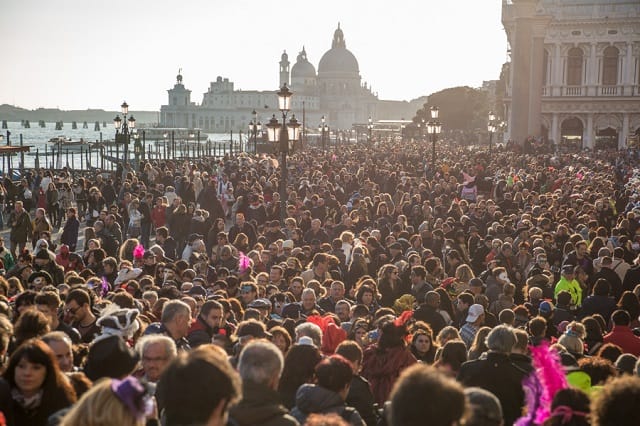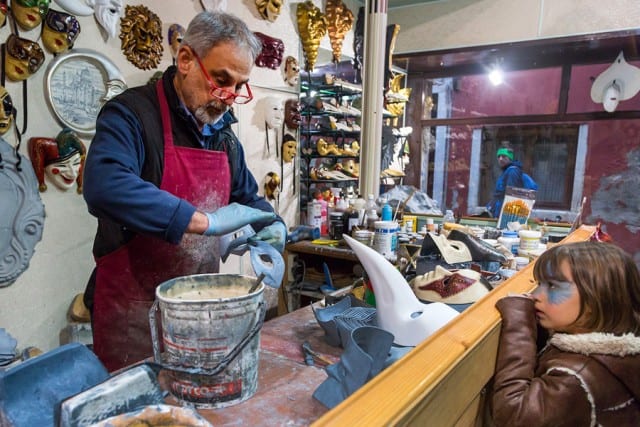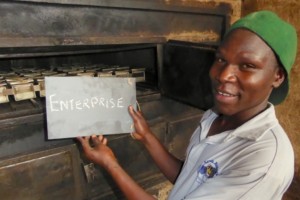Meanwhile, a young couple promotes authentic experiences

As the consultants and spin doctors of the world lick their lips — and institutional bookshelves and cloud servers standby to supply storage for their expensive output — in Venice a social enterprise run by a 30-something couple is walking the talk by promoting authentic experiences and supporting local businesses.
The Italian port city groans under the weight of over-tourism, and protests by the diminishing numbers of Venetians are becoming more frequent and more serious. Last summer angry locals plastered the city with flyers reading “Tourists go away! You are destroying this city.”
Local resident and social entrepreneur, Sebastian Fagarazzi, whose family had to close down its textiles shop due to the pressure created by mass tourism, takes a more pragmatic approach: “Tourism is the problem, but it’s also the only solution. Everyone protests [against excessive tourism], but no one has done much to try to have an immediate positive effect.
“Venice is a one-industry city,” he said. “It relies on tourism, like our bodies rely on food to survive. But in order to thrive, you need to have the right kind of food; the right kind of tourism. The wrong kind can mean death.”

Authentic experience. A Venetian artisan works on a mask while a young girl watches. Source: Venezia Autentica via The Local
Fagarazzi and his partner, France-born Valeria Duflot, believe there is plenty of the right kind of food available. They reckon most visitors to Venice want a more authentic experience, so they are doing something about supplying it. Their social enterprise Venezia Autentica aims to promote more authentic experiences by supporting local businesses.
The pair are skeptical about recent measures introduced by city authorities aimed at protecting the city’s heritage, including bans on new hotels and takeaway food joints in the historic centre.
“They’ve basically closed the stable door after the horse has bolted,” says Fagarazzi. “The bans only apply to new establishments when there are hundreds already, and there will be exceptions when it suits the authorities.”
Instead, Fagarazzi and Duflot reckon support for Venetian-run businesses and local residents, such as tax exemptions for entrepreneurs or housing support for young people, would be much more meaningful.
Nevertheless, the two young Venetians hope their business will offer some support to local entrepreneurs and artisans by highlighting their shops to visitors and educating tourists on the tradition, skill, and long hours that go into making authentic products.
Authorities at all levels, including UNESCO and the World Bank, would do well to chat to local social entrepreneurs like Fagarazzi and Duflot before making costly decisions.
Source: This post was based on very brief summary of an article in The Local. Please read the full story.
Featured image: Throngs of tourists flood the streets of Venice by Venezia Autentica via The Local.
Related posts





